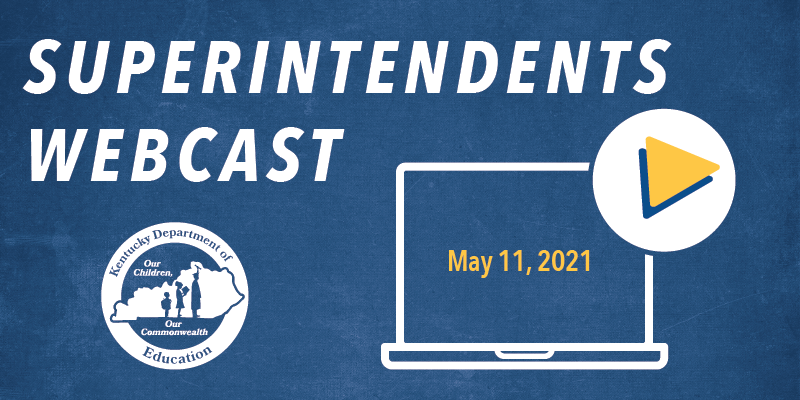 So far Kentucky has received two-thirds of the $2 billion it was allocated under the American Rescue Plan Elementary and Secondary School Emergency Relief funding, or ARP ESSER.
So far Kentucky has received two-thirds of the $2 billion it was allocated under the American Rescue Plan Elementary and Secondary School Emergency Relief funding, or ARP ESSER.
The rest of the money will be released upon approval of an application and plan from the state, which will be submitted by June 7, said Robin Kinney, the Kentucky Department of Education’s (KDE’s) associate commissioner in the Office of Finance and Operations.
Kinney’s comments came during the May 11 Special Superintendents’ Webcast. ARP ESSER funds will be available for use through Sept. 30, 2024.
New in this round of funding is a requirement for school districts to include “meaningful consultation” with stakeholders in their spending plans, Kinney said. That means documentation of input from a broad and representative group from the community and how that input was used.
Districts must reserve at least 20% of their ARP ESSER money to measure and address the impact of lost learning time with evidence-based interventions. Those interventions must respond to students’ academic, social, emotional and mental health needs, and consider impacts on groups disproportionately affected by COVID-19 such as racial and ethnic minorities and the economically disadvantaged.
Kinney said districts must create two plans, both accessible to the public: one on how they intend to use ARP ESSER funds, including meaningful consultation with stakeholders and evidence-based interventions; and one on how they will safely return to in-person instruction and provide continuity of services. Most districts have a head start on the latter, she said.
A condition for receiving ARP ESSER funds is maintenance of equity of funding and staffing for high-poverty schools. Kinney said more information on that will hopefully come from USED guidance soon.
Vaccine Availability
The Pfizer vaccine for COVID-19 has been approved for 12- to 15-year-olds, and will likely be offered to that age group starting May 13, said Dr. Stephen Stack, commissioner of the Kentucky Department for Public Health (DPH). While young people usually do not become seriously ill from COVID-19, they still can be infected and spread it to others who are more vulnerable.
Dr. Connie White, DPH deputy commissioner, said 15.3% of COVID-19 cases in Kentucky have been among people age 19 or under.
Stack urged superintendents to promote vaccination for those 12 and older, and work with their local health departments to schedule shots.
“I look to you for your leadership in this,” he said. DPH has partnered with Lexington-based Wild Health to offer free vaccination events at schools, which can be scheduled by calling (502) 791-6258.
Those who are fully vaccinated, if exposed to someone with COVID-19, are not required to quarantine unless they show symptoms. That can bring an end to interruptions in classes and athletics, Stack said. He predicted that with continuing vaccination efforts, fall classes will look much more like a normal school year.
Food Service
Most school districts are continuing to offer meals through the Summer Food Service Program for the current school year, said Lauren Moore, director of the Division of School and Community Nutrition in KDE’s Office of Finance and Operations. The U.S. Department of Agriculture recently released waivers for school year 2021-2022, which includes allowing the operation of the Seamless Summer Option (SSO). If districts elect to operate the SSO, schools can provide meals at no cost to students and other community children, and may claim the meals at the higher Summer Food Service Program rate, she said.
Similar waivers allowing non-congregate meal service, variable meal times and meal pick-ups have been extended, Moore said. Districts will receive additional information on how to apply for waivers for school year 2021-2022.
Trauma-Informed Plan
Under the School Safety and Resiliency Act, each local board of education must develop a plan by July 1 to implement trauma-informed policies and services, including the creation of a trauma-informed team of school, health and counseling personnel, said Christina Weeter, director of the Division of Student Success in KDE’s Office of Continuous Improvement and Support.
An online toolkit for these actions can be found on the KDE School Safety and Resiliency Act webpage.
Two training sessions are available for administrators and trauma team members: one on May 18, June 1 and June 8, from the Kentucky Council for Children with Behavior Disorders; and one on May 25 from the Bounce Coalition.



Leave A Comment